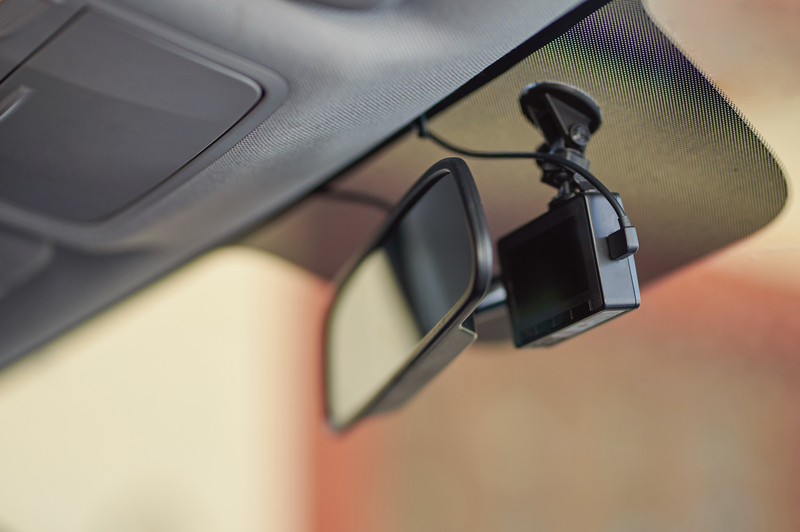Many haulage and logistic firms have started using driver-facing cameras as a means of managing behaviour among their fleet drivers. They can also help protect drivers in the event of an accident, as any footage recorded can be used to determine exactly what caused the incident.
Driver-facing cameras are a highly contentious issue in the fleet world. In this post we’ll examine what the law has to say about the issue, before discussing the pros and cons of monitoring your drivers in this way. We’ll also look at some other ways you can effectively manage behaviour among your drivers.
At Anthony Jones we specialise in insurance for the transport and logistics sector. If you have any questions about your legal obligations as a driver or fleet manager, call us on 020 8290 9099 or email commercial.motor@anthonyjones.com.
Are Driver-Facing Cameras Legal?
There does not seem to be any law in the UK expressly forbidding the use of driver-facing cameras in trucks. However, there are laws against filming people without their consent. There are also laws about how you store and use any footage you record.
According to the Information Commissioner’s Office, you can use driver-facing cameras in your fleet so long as you can justify doing so. You need to:
- Tell your drivers you’re recording them and explain why.
- Understand your drivers’ rights, and your role in protecting them.
- Handle the footage responsibly.
- Check your data protection fee payments are up to date.
The ICO recommends you check you have a lawful basis for using driver-facing cameras.
Storing Driver-Facing Camera Footage
You should also take steps to ensure that any footage you record is safe and secure, and you should delete any footage when you no longer need it. If you don’t take these precautions, then driver-facing cameras could cause more harm than good. You could face legal action, for invasion of privacy, or for misuse or mishandling of data.
With all this in mind, you might think that driver-facing cameras are more trouble than they’re worth. Yet there are some benefits to using them.
What Are The Benefits of Using Driver-Facing Cameras?
Cameras in your fleet can work as a strong deterrent against crime. As they can reduce the risk of theft, they may help bring down the price of your insurance premiums. And speaking of insurance, reliable video footage can come in handy if you ever need to make a claim on your policy.
Cameras can also help raise driver standards. You can use your footage as part of your driver training. Also, drivers might be less likely to take unnecessary risks if they know that you’re recording them as they drive.
What are the Downsides of Using Driver-Facing Cameras?
Cameras are relatively cheap and easy to install. But as we suggested above, they might not be so straightforward to manage.
You’ll have to revise your employment contracts to ensure that everyone’s onboard with your recording. You’ll also have to pay an annual data protection fee and take steps to securely store and process any footage you record. This will include setting policies for deleting the footage once you no longer need it. And as we’ve seen, if you don’t take these precautions, you could face legal action.
Also, using driver-facing cameras will almost certainly be a point of contention for many of your drivers. Even if you explain why you’re using cameras, some of your drivers may see it as a sign that you don’t trust them. A few may leave to find work elsewhere. But those who stay may feel demoralised and resentful.
And apart from anything else, driver-facing cameras might not be your best option anyway. For example, some fleet managers may claim they’re recording their drivers to ensure they take their legally mandated rest periods. But you can use tachographs for this very purpose, with none of the additional admin, risk, and resentment that comes from using cameras.
Managing Driver Behaviour in Your Fleet
Effective ongoing driver training is the best way to manage driver behaviour in your fleet. Technology can make a huge difference, of course. But as we’ve seen, it’s vital that you strike the right balance – you need to monitor your drivers to the extent that you can identify any areas of concern, but not to the extent that you violate their privacy.
If you wish to use driver-facing cameras, you should make it clear to your drivers that you’re not constantly watching them. Instead, you’ll only use the footage if you need to, such as following an accident, or if you have any reason to be concerned about a driver’s behaviour. And in the latter case, you should clearly outline just what sort of behaviour might cause you to review the footage – such as reports of speeding, or when you suspect a driver might not be taking their legally mandated rest periods.
You should also assure your drivers that any camera in the cab will be switched off as soon as the engine stops. You’re not monitoring them round the clock, and they can enjoy total privacy during their breaks and rest periods.
You can read our full guide to managing driver behaviour in your fleet.
At Anthony Jones we specialise in insurance for the transport and logistics sector. If you have any questions about your legal obligations as a driver or fleet manager, call us on 020 8290 9099 or email commercial.motor@anthonyjones.com.


